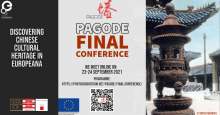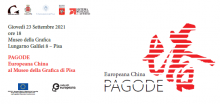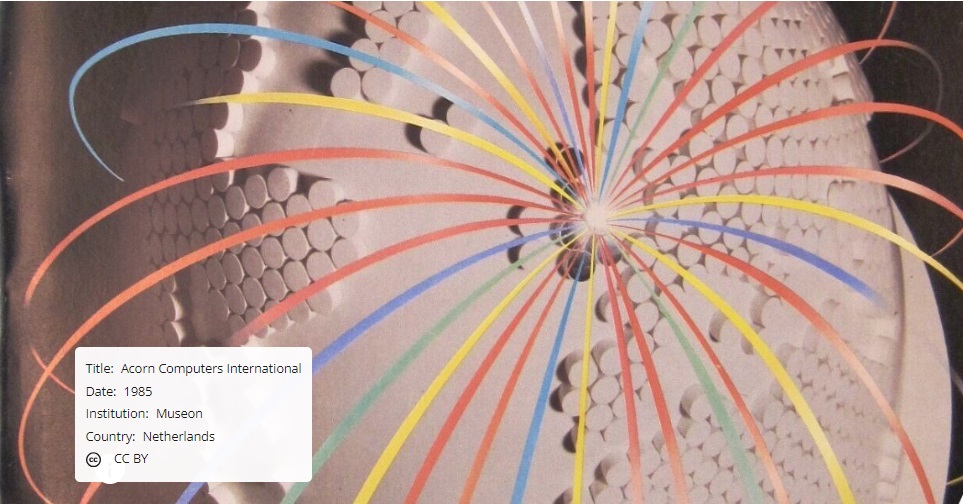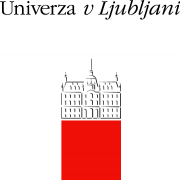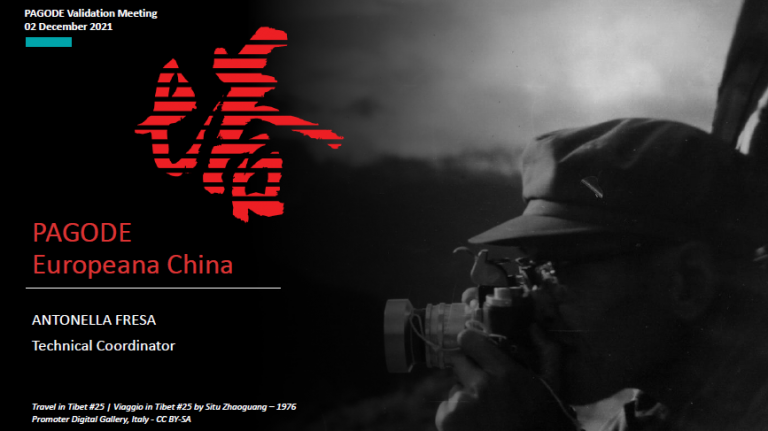
On the 2nd December 2021, the validation meeting of project PAGODE – Europeana China took place with participation of HaDEA Project Officer Ms. Kyriaki Tragouda and representatives of European Commission DG CNECT Ms. Katerina Moutogianni and Mr. Fulgencio Sanmartín.
The validation meeting had the scope to assess the correct and complete achievement of the project’s objectives. All project partners were invited in the meeting, together with a number of colleagues from Europeana’s various areas, to present to the reviewers all the work done across the project’s activities to improve, enrich and enhance user experience with Europeana content.
Normally, the validation meeting marks the project’s end; but in line with the sustainability efforts that the PAGODE consortium committed to, some more work is continuing even beyond the end of the funding period.
In particular, few more blogs were recently published on Europeana to enrich the Chinese Heritage feature page:
About the Chinese Garden
In China, spirituality has historically been a crucial aspect of arts and architecture. A specific part of art and architecture where the spiritual and the real meet is garden design and horticulture, as in facts traditional Chinese garden design and cultivation is an activity associated with deeply intellectual and artistic practice. Not intended to be discovered at a glance, but hoping to continuously incite and surprise, the Chinese garden is laid out as a road of discovery. The surrounding garden wall, ponds with lotus flowers and other water plants, lacquered bridges, bamboo groves, pavilions, temples and pagodas make for inspiring scenery. The goal of these gardens is to connect the realm of the physical with that of the ideal, to express the harmony that should exist between humans and nature.
Read the full blog about the Chinese garden, authored by Sofie Taes on Europeana website >>
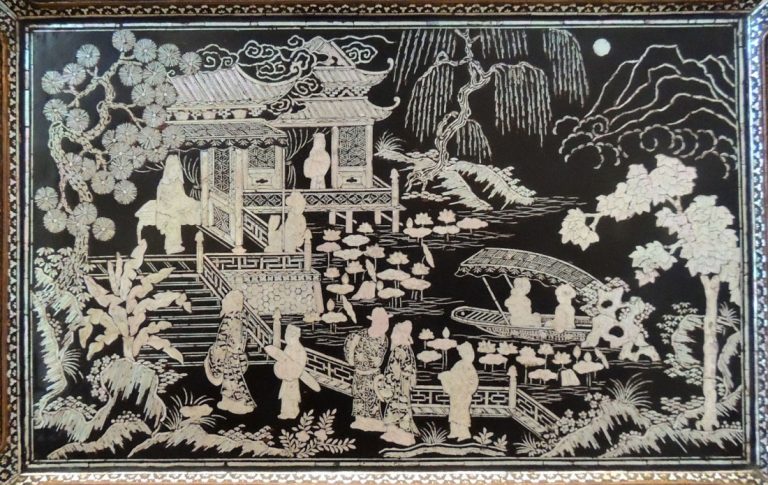
image: Stairs, pathways, pavilions, pond, rocks and exquisitely varied vegetation, depicted on a black lacquer tray with inlaid mother-of-pearl decoration, s.d. CC-BY-SA United Archives / WHA via Europeana.
About the history of Jesuits in China
The Society of Jesus, better known as the order of Jesuits, was a society founded in 1539 by Ignatius of Loyola (1491-1556) with the aim to convert the world to Catholicism. In the 16th century, the first Jesuits arrived in China settling in the port-city of Macao in South China, at that time owned by Portugal. From this base, the Jesuits entered the Chinese hinterland and began their work of conversion. While establishing churches at different locations, they even started fostering the dream of converting the Chinese emperor himself. During their stay in China, the cultural exchange between Jesuits and Chinese would result in advances in astronomy and mathematics, beautiful works of art, and shining beacons of architecture. But there was also intrigue, spying, and political and religious opposition to Jesuits.
Discover the stories and history of Jesuits in China in a two-part blog authored by Julien Ménabréaz on Europeana website >>
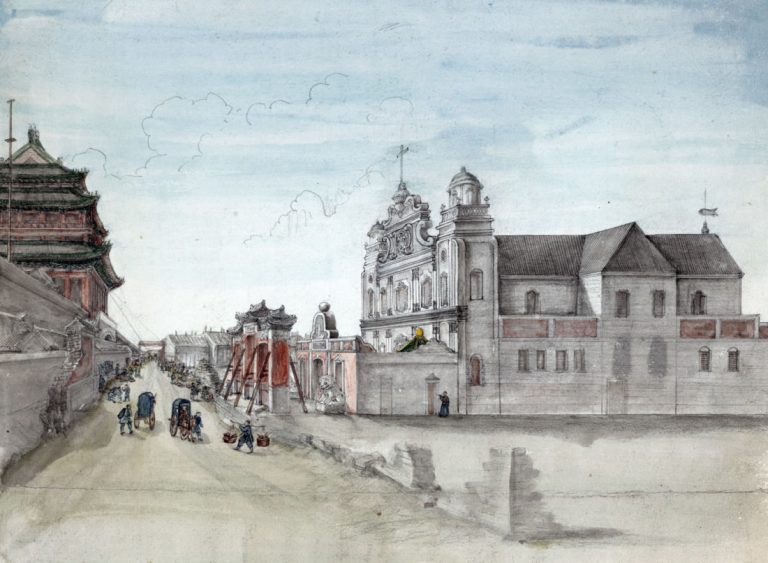
image: Church in Beijing , c. 1860-1900, United Archives / WHA, CC-BY-SA via Europeana.



